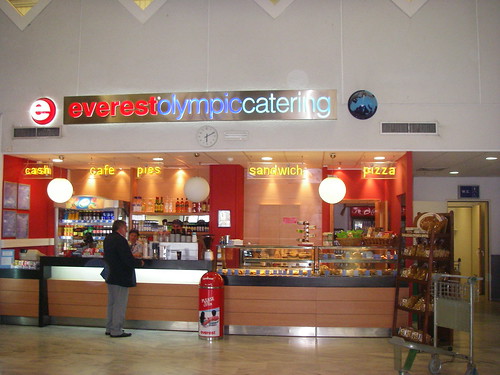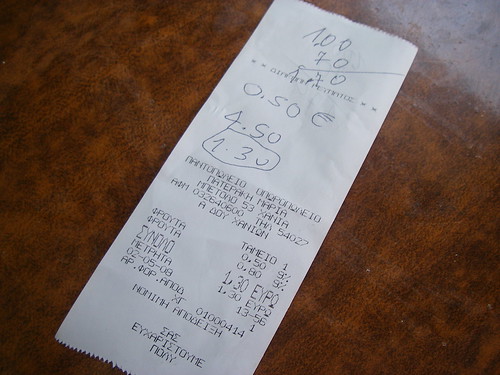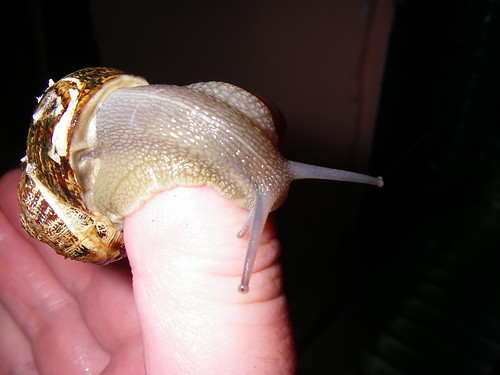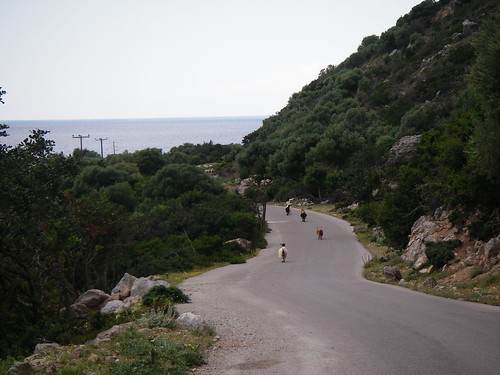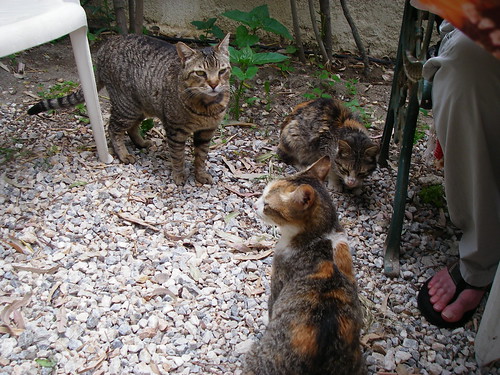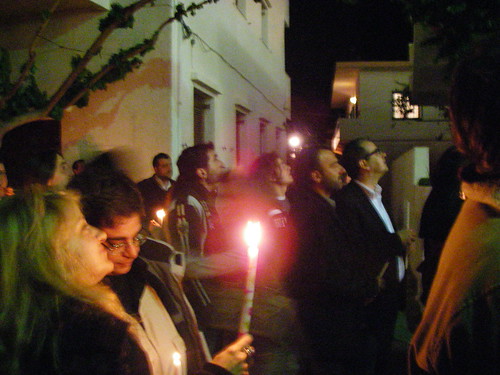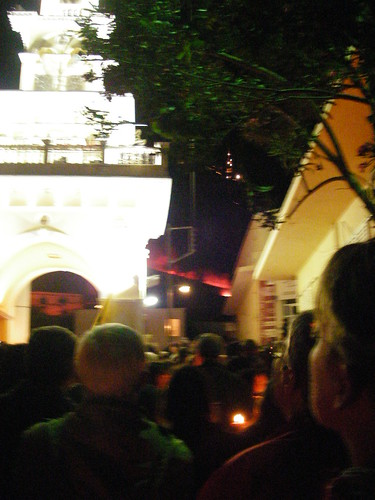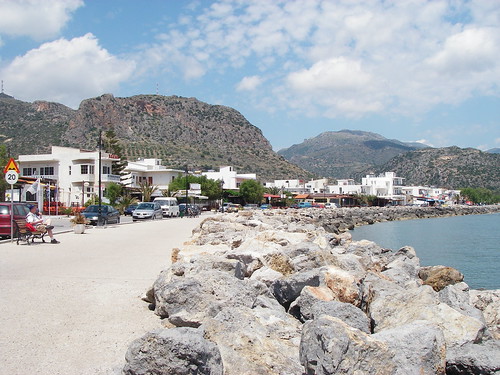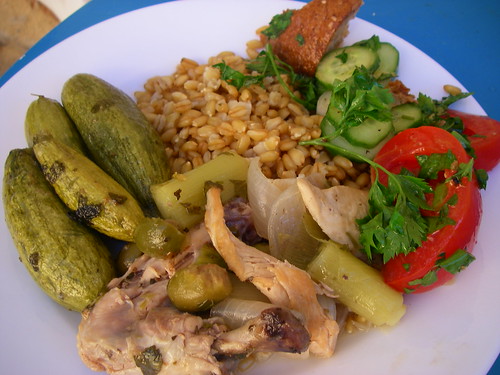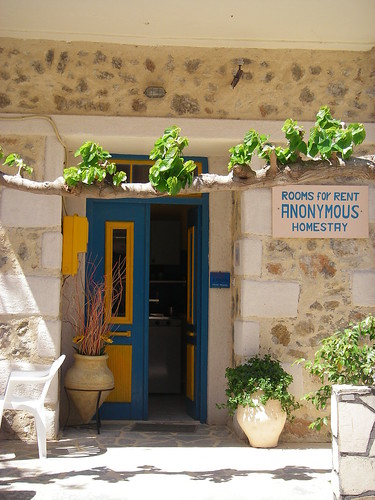Heraklion: Airport Hassles
Friday, May 2nd, 2008I wish I could finish on a good note, but nothing went right once we got onto the bus to Heraklion.
The journey took longer than expected, and there was no stopover. A shared spanakopita from the bus station was all we had to sustain us while I fantasised about our Last Supper at the ‘to Xania’ Tavern.
The bus drove past endless beachside developments for what seemed like an hour before we finally got to town.
“There are no door trees here,” John said sadly.
Indeed not. Just a few sad potted saplings and row upon row of concrete.
We had about an hour in the centre of town, and that wasn’t enough to try and find a reasonable taverna. I had to forget about eating lunch in the shade of a plane tree, dithering about what wine to choose, having one final cigarette with my legs stretched under a table.
Instead we quarrelled and spat while we flitted from one kiosk to another, buying up cigarettes and tobacco. When we got onto the bus we had forgotten to also buy tickets, but thankfully the driver accepted change. And at the airport it turned out that the snackbars across the street were closed.
Over two hours to kill and no place to eat except for the truly vile, sole catering franchise which sold the worst cardboard pies I have ever encountered on my travels. With hundreds of people milling around and the restaurant likewise closed (missing out on an opportunity to print money, the stupid cunts), I wished for a Mac Donald’s for the first time since Eastercon.
But the two hours would go past faster than we counted on.
The check-in opened on time, even if it took another twenty minutes or so to sort out the logistics. Then the passengers were sent on, one-by-one, with their suitcases in tow.
“Go to counter 31 to check in your luggage,” the woman said.
Counter 31 was a sight to behold. About 300 people and their luggage were gathered in a queue that stretched from the corner of the hall to the entrance at the opposite side before doubling back on itself, and the sign above the counter read ‘Hamburg check-in’. There wasn’t any point in even trying.
I left John guarding the bags and went looking for answers.
The lady at the information counter sent me to the offices of Goldair Handling which, according to a sign that covered nearly the entire door, is considered by Lufthansa (among others) to be the best.
There I was ignored by another woman who typed boredly on a keyboard until I aroused her attention. She sent me on to the Duty Manager with a few succinct words: “It’s not my problem.”
“Trust me, it is your problem!”
I left with her still staring open-mouthed at my back, but the duty manager must have been notified because when I got back, five or six counters were open and the original queue was much diminished. John had almost reached the desk where people were still ostensibly waiting to check in for their flight to Hamburg.
“Some German bloke came up to me when you were gone,” he said. “He was almost in tears. He said he’d been waiting for 2 hours and his flight to Hamburg was about to depart, whether he could go in front.”
“And?”
“I said no.” A shrug. “Well, I sent him to the managers’ office.”
That’s right: pass on the love.
With that, we had reached the head of the queue. The backpacks had barely left our hands—and we had barely lit a cigarette—when Easyjet invited its special assistance passengers to board the plane.
Several people in the queue began to twitch.
We made our way to security.
